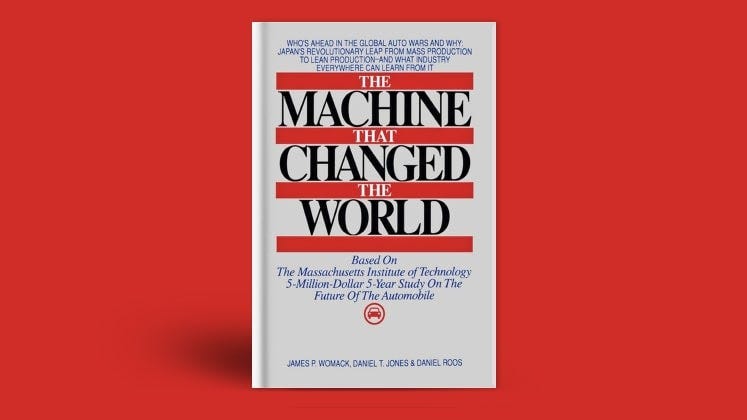Let’s Talk about ‘Shareholder Value’
When the wave of Japanese competition finally crashed on corporate America, those best equipped to understand it—the engineers—were no longer in charge. R&D was just a useless expense, no matter the murmurings of foreign industries catching up to us.
American boardrooms had been handed over to the finance people, and they were hypnotized by the new doctrine of shareholder value. That’s where the money was, the golden ring. Who needed long-term improvements or sustainable approaches to cost control? Pay packages for number-crunchers rewarded short-term spikes in stock price. There were lots of ways to produce those by cycles of firing and rehiring, raiding the retirement benefits cookie-jar, cutting customer service and offshoring manufacturing.
Have you had a reason to contact your bank recently? There’s no one there. Deposits and disbursements are done by ATMs and tellers are a thing of the past. Call them and wait for an operator for a half-hour, listening to intermittent messages hawking new services and telling you how important you are to them, as your call is finally answered in an Indian accent.
Which brings us to the hinge point of 1990, when a trio of MIT researchers published The Machine That Changed the World
It named the Japanese system “lean production,” and urged corporate America to learn from it. Just then, the Japanese economy crashed, not a good omen, but easing the pressure on U.S. firms. So, in the years that followed, American manufacturers doubled down on outsourcing, offshoring, and financial engineering. This round of wounds was willingly self-inflicted. Already infused with a stench of decay, manufacturing was written off as yesterday’s activity.
If you were a line worker in any of the industries that built American power, you’d be alarmed to hear that, but the bean-counters had made you newly dispensable.
We now know how that turned out, but keep ignoring the lesson
American business was entranced by Milton Friedman’s enthusiasm over free markets. Speaking about free financial markets (those without government controls) Uncle Milty was famous for saying “A society that puts equality before freedom will get neither. A society that puts freedom before equality will get a high degree of both.” Tell that to a line worker, whose CEO takes home 400 times his salary.
Since that ‘hinge point of 1990,’ the United States has experienced five recessions since 1990 and expects another within the next year. Since 1990, those heady years of ‘freeing up financial markets’ and ‘maximizing shareholder returns,’ Americans ended up holding roughly $137.6 trillion in wealth in 2022, according to the Federal Reserve.
Unfortunately, that gain in wealth was not equally distributed. The top 20% took home 71%, middle class income declining to 26% and the poor were left to make it on the remaining 3%.
A trillion is a thousand billion, so the numbers are staggering, beyond comprehension for most of us, but the percentages are starker yet. Less than 30% of all wealth belongs to the middle and poorest classes.
What happens to shareholders when things go bust?
For the most part, Friedman has your back. Institutions, banks, and the largest corporations are now held to be ‘too big to fail’ and are bailed out by the federal government. That, in case you were wondering, is you and me, who are never (and will never be) too big to fail. We are the largest taxpayers by far because companies withhold our taxes.
However, not all recessions are equal. On average, America hits one every 6.5 years, which doesn’t give we non-shareholders much time to breathe. In the 2008 recession, nearly ten million Americans lost their homes.
But Milton Friedman has declared that “the social responsibility of business is to increase its profits”
71% to the top and 29% to the rest of us.
And we wonder why Donald Trump has supporters.

